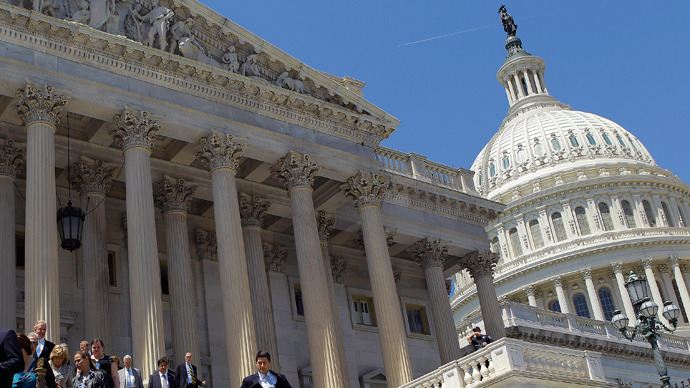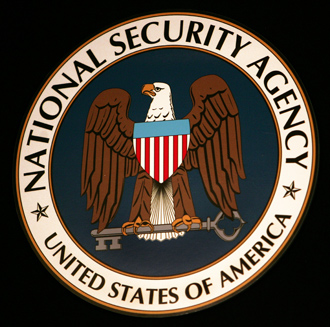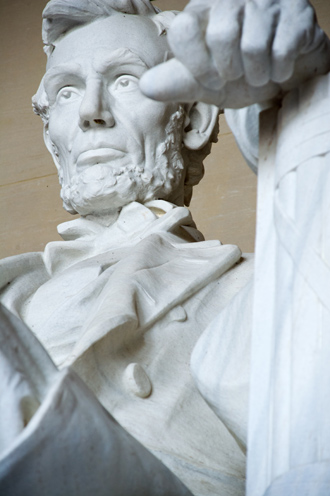NSA overreach: When a system of checks and balances breaks down

We know of the NSA’s domestic telecom and internet surveillance programs today not because of the efforts of Congress and esteemed Senators like Ron Wyden (D-OR) and Mark Udall (D-CO), but instead thanks to brave whistleblowers.
This fact speaks not only to the critical role whistleblowers are
playing and will continue to play in the struggle against an
emerging, monstrous surveillance state, but it also speaks to the
dereliction of duty of the legislative branch, entrusted with
holding the power of the Executive in check, and utterly failing
in this primary task over the last decade.
It began with the PATRIOT Act which greatly expanded the powers
of the executive to conduct domestic surveillance. Specifically
related to domestic spying, the PATRIOT Act’s section 215 is the
linchpin for the modern surveillance state. How was the NSA able
to use a FISA court to snoop on the calling data of millions of
Verizon customers? Section 215 – also known as the business
records section.
As Sen. Dianne Feinstein noted after news broke of the Verizon
snoop, “This renewal is carried out by the FISA court under the
business records section of the Patriot Act. Therefore it is
lawful. It has been briefed to Congress."
The ACLU argues, “Section 215 of the Patriot Act allows the FBI
to force anyone at all - including doctors, libraries,
bookstores, universities, and Internet service providers - to
turn over records on their clients or customers.” You can add
telecom companies like Verizon to that list, too.
The only check on this is a secret FISA court, with secret
rulings, and a gag on any warrants that come out of this court.
Rep. Jim Sensenbrenner (R-WI), the author of the original PATRIOT
Act and section 215, reacted with outrage to the news of the
NSA’s collection of Verizon users’ data. “How could the phone
records of so many innocent Americans be relevant to an
authorized investigation as required by the Act?” he asked in a
letter to Attorney General Eric Holder.
Sensenbrenner argued that he does not believe the NSA action “is
consistent with the requirement of the Patriot Act.” If only he
listened to the warnings from privacy experts back when he was
drafting the legislation.
Despite privacy concerns routinely raised by certain lawmakers,
section 215 has been renewed along with the larger PATRIOT Act
which was extended another four years in 2011.
But in its mission to cede all oversight power to the Executive,
the Legislative branch didn’t stop at the PATRIOT Act. With the
Protect America Act of 2007 and later the FISA Amendments Act,
Congress removed the need of executive intelligence agencies to
even obtain a warrant from a FISA court. It codified electronic
monitoring of communications of all Americans who may be
communicating with foreign agents, as long as it was “reasonably
believed” that the specific target of that surveillance was not
inside the country. And to discourage telecom companies from not
complying, they were granted full legal immunity to betray their
customers’ privacy.
In regards to the latest revelation about the massive internet snooping operation known as “PRISM,” the ACLUnotes that subsections of the Protect America Act of 2007, “create the enforcement mechanism, allowing the AG or DNI to direct a communications company to immediately allow access to its facilities.” The ACLU adds this provision is, “one of the most dangerous…It allows the government to directly tap into telecommunications facilities.”

This appears to be exactly what the NSA was doing with PRISM.
So, it’s pretty clear: all this outrageous domestic surveillance
coming out of the Executive that’s long been speculated and only
recently confirmed, was made possible thanks to Congress. That
explains why Congress has largely been unsurprised by these
revelations.
Sen. Bernie Sanders (I-VT) admitted that lawmakers had a “general
sense” of the scope of NSA spying, “but with no specificity.”
Going a step further, Sen. Saxby Chambliss (R-GA) admitted,
“Everyone’s been aware of it for years, every member of the
Senate.”
And Sen. Dianne Feinstein also said news of these surveillance
programs doesn’t come as a surprise to her and her colleagues and
they are regularly briefed on it.
The Senate knows because they wrote the laws giving the President
the power to conduct this sort of surveillance.
The actions of both parties in Congress as well as both a
Democrat and Republicans in the White House over the last decade
proves that political change has done little to rein in the
growth of surveillance. The pervasive effects of money in
politics and the media’s obsession with fear-driven stories,
means lawmakers who do want to reassert Congressional oversight
into domestic surveillance will face consequences and charges of
being “soft on national security.” Paralyzed by fear, the
legislative branch has neutered itself.
So, now that Congress has abdicated from its responsibility to
provide oversight and hold the Executive accountable for
preserving first and fourth amendment constitutional rights, we
must rely on our fellow citizens – on whistleblowers for the
oversight. Luckily for all of us, they are up to the task.
The Washington Post reports that the individual who handed them
information about PRISM had, “first-hand experience of these
systems” and was in “horror at their capabilities.” The officer
told the newspaper, “They quite literally can watch your ideas
form as you type.”
Glenn Greenwald who broke the NSA/Verizon story with The
Guardian, said he obtained the information from one of his
readers who trusted Greenwald’s reporting on domestic
surveillance and treatment of whistleblowers.
These new whistleblowers are the latest in a line of citizens –
from Thomas Drake to John Kiriakou – who’ve seen first-hand what
the United States government is up to, and believe that the only
way to stop these abuses is to expose them.
And while there were fears that aggressive actions by the DOJ
toward AP and Fox News reporters James Rosen may discourage
whistleblowers and journalists in the future, the exact opposite
has happened. DOJ and NSA actions have only emboldened
truth-tellers.
The succession of bombshell leaks laying bare the NSA and DOJ’s
surveillance of Americans can best be described as a “revolt”
against the security state. These individuals realize that absent
an aggressive legislative and judicial branch, they – and all of
us, really – are the final check against misuse of power by our
President and his intelligence agencies.
As we’ve seen over the last decade, it’s true that without oversight, the Executive branch can run amok. But, as we’ll learn in the coming years, this can only last for so long before people of conscience step up to expose it. Armed with the facts about what’s going on, “we the people” will take care of the rest.

As Abraham Lincoln believed, “Give the people the facts and the Republic will be saved.”
Years from now, we may look at these two fateful days in June,
when massive components of the security state were dragged into
the light, as the beginning of a great unraveling – the beginning
of the end for the post-9/11 security state apparatus.
It’s too early to tell if these revelations will compel Congress
– the most democratically responsive of the three branches of
government – to find its oversight footing once again and serve
as a needed check on overblown powers of the Executive. There
have been a few hollow calls from Capitol Hill for investigations
and hearings into the NSA since this news broke.
But if Congress chooses to lie down once again while the
Executive runs roughshod over the Constitution, then it will be
up to “we the people” to build the movements necessary to correct
the balance of power in our government. And it will be
whistleblowers marching as the vanguard of this movement.
The statements, views and opinions expressed in this column are solely those of the author and do not necessarily represent those of RT.
The statements, views and opinions expressed in this column are solely those of the author and do not necessarily represent those of RT.












